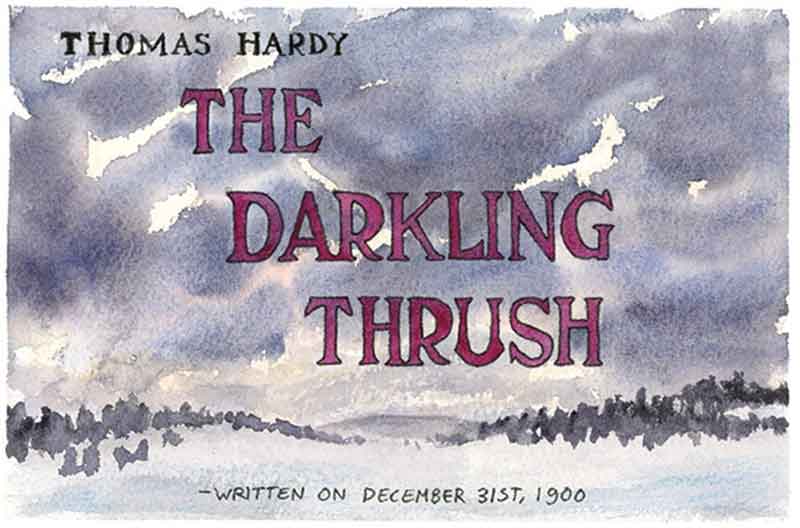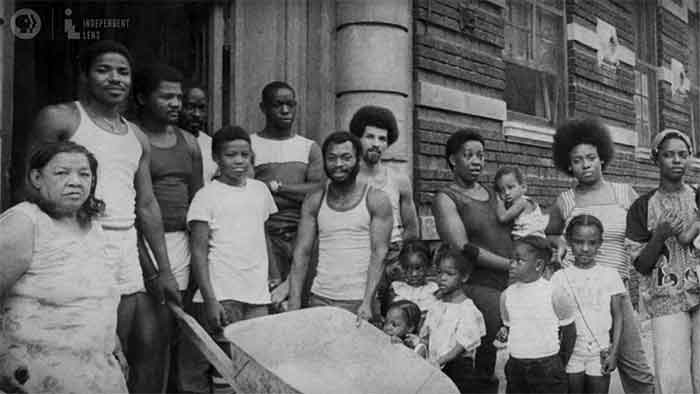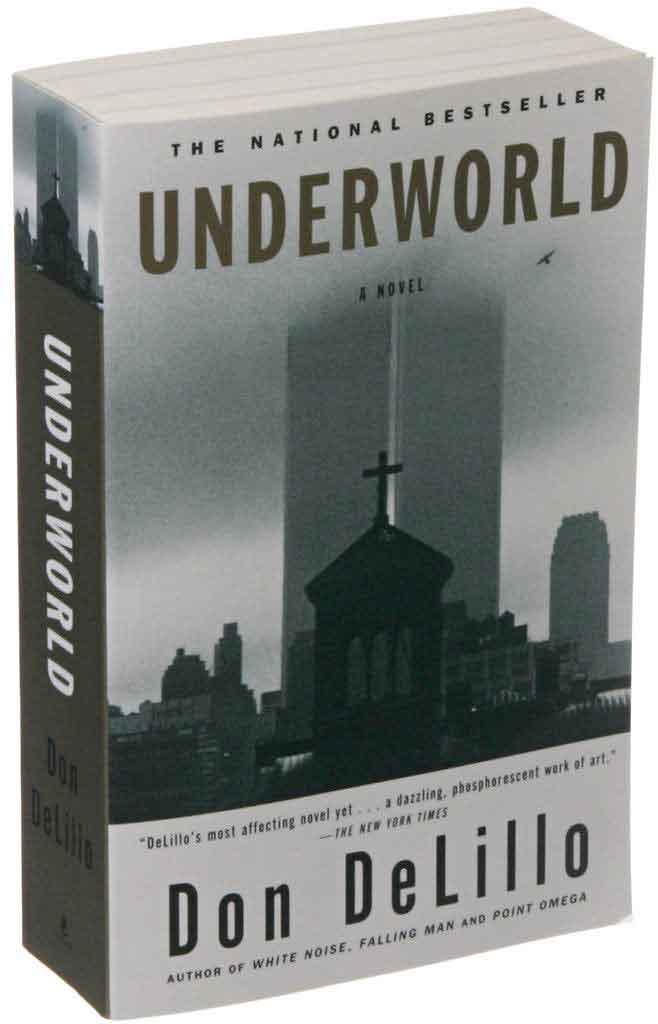
With the farmers marching out to demand their rights in India, with more consciousness of the need to close gaps between the privileged and non-privileged worldwide, with climate crisis becoming a major force to redefine our thinking, perhaps the time has come to rethink how literature can be moulded to serve the needs of the masses. That we wake up to the urgency of bridging gaps between different levels of education to create a more evolved world for mankind as a species is fast becoming an unspoken necessity to live with advances that time is unfolding for us. Leaving behind more than one half of the world is not really an alternative. The tiny corona virus has shown us, proven to us, we need to unify as a race.
Recently, I watched a TED talk by a man called Bunker Roy. He was a squash champion in India for three years, with a privileged education from Doon school (where also had studied the scions of the Indira Gandhi family) and the high-browed St Stephen’s College of Delhi University. He was all set to be a diplomat. Then, he decided to see what a village was like and went to one during the 1965 famine. He came back with all the boxed ideals of a glamorous bureaucratic future replaced by a dream of digging 500 wells. He lived out his dream much to the chagrin of his mother. He started a barefoot college in arid Rajasthan, called Tilonia. This, he claimed in his talk, is the only college in the world where postgraduates and doctorals are not welcome. It has non-collegiates to teach the illiterate. They teach life skills. And now he has a bunch of grandmothers who are laying solar cells and lighting up the world from Afghanistan to India to Africa to Sierra Leone. His work has now spanned 64 countries, beyond all borders. He goes where there is a need to bridge a gap between the ‘developed’ and ‘underdeveloped’ worlds.
This is a man who broke out of boxed thinking, reached out to people and made changes in the lives of people. I would love to write of what made him choose as he did, what made him opt to leave a life of glamour and ease and work for developing a village. He did not see if they were bhakts or liberals, Republicans or Democrats or educated or non-educated entities. He just saw them as fellow humans and he touched their lives and work with his unboxed choices.
The reason I write of him is because I would want to use somebody like him as a role model for writing. But he does not write. He works with his hands. How could he be a role model? To me, he is a role model because he could break out from boxed thinking and create a new concept in learning and reach out beyond borders drawn artificially by mankind. Is that not what all great literature should be doing? Breaking out of boxed thinking to create new inroads into human thought, to discover new paradigms for the souls that thirst for succour in these trying times. He lived out Gandhi’s dream as I read it in the Mahatma’s autobiography — My Experiments with Truth. Gandhi was another man who thought beyond his times. He was talking of developing villages the way Roy has done, long before Roy decided to dig wells. And yet his books were not prescribed for any literature classes three decades ago, in my university days in India. We did read translations of Plato and Homer — but not anything that would bring us closer to the people of our own country, to their needs. If Plato can be seen as a part of English literature, then why not Gandhi?
Recently, I read a book called Persepolis by Marjane Satrapi, which has been prescribed as compulsory reading for my son’s international Baccalaureate English Literature course. I was happy to see this bridge. For, I would call it a bridge. The book is in the form of black and white cartoons with writing, which has effectively conveyed the plight of Iranians crushed between the Shah and Ayatollah Khomeini regimes. With a few bold strokes, it expressed so much. Though comments behind the book are many, some convey my own sentiments. This, written by Sandra Cisneros, author of The House on Mango Street, I felt was the most apt to describe my experience: “Part history book, art Scheherzade, astonishing as only true stories can be, Persepolis gave me hope for humanity in these unkind times.” Another by journalist Gloria Steinem, said: “You have never seen anything like Persepolis — Marjane Satrapi may have given us a new genre.”
Value based writing like that of Satrapi is important in educating and bridging gaps between those who have time to indulge in literary cogitations and those who grow food or build roads for us, both of these being the necessary function to survive in this world. Of course, the farmers and road makers may not be able to read in English but that is where translators can help. And if they cannot read in any language at all, literacy and making books about things that concern them so that they can be weaned into reading, thinking and moving to understand the decisions that affect their lives is something that should be a major concern of the literate world.
We, however, should think of a language that can be spoken by all in the world. To me, English is the obvious choice but many believe, vernacular gives a firm base to a human’s cultural identity. We can have both to add to the colours of the universe. For me, any language works as long as I can understand it and it conveys. Humankind is my only faith. I learnt that from Lalon, Tagore and Nazrul – all great writers but clearly their translations were left out of my English literature curriculum in 1980s, though translations of Latin, Greek, Spanish and French writers were not. I wonder why?
I stopped my pursuit of literature in University after finishing my masters because I felt it was too far removed from the realities of life. Literature ideally should deal with the world around us, teach us to learn to live in harmony, rise above greed, hatred and intolerance. Plato wrote of the world he lived in and wrote to bring these values into his world, creating his utopia in The Republic. Homer created based on his belief. Gandhi wrote his autobiography in Gujarati and it was translated to multiple languages, helping us understand the world around him. Like Plato, he wrote about his ideas to create a harmonious India which not only did we not study but were conveniently brushed aside by the independent government in favour of the five- year plan system, which has failed miserably. My question is if Plato is taught in literature why not Gandhi? Studying Gandhi might have given us ideas on how to create more Bunker Roy-like figures in the Indian Administrative Service – create a cadre of people who could go to grassroots in an organised way and really effect changes and bridge gaps.
Chaucer, one of the people who we were taught, started out as a public servant, fought in the hundred Year’s war in France, ended up in jail; introduced the iambic pentameter to the English language and wanted to write hundred and twenty Canterbury tales — ended up writing only twenty-four. He worked as a public servant for a living not as a writer creating “literature ”. He enjoyed poetry, read Italian poets Petrarch and Dante while in Italy. He even went to look for a bride for the king of England for Richard II. Chaucer wrote of the world around him in his era.
Shakespeare wrote to entertain masses — like JK Rowling or Dan Brown — except he did it with plays and these people write novels. He was an actor too. The 1592 edition of the Stationers’ Register (a guild publication) includes an article by London playwright Robert Greene who described Shakespeare as such: “Yes, trust them not, for there is an upstart crow, beautified with our feathers, that, with his Tygers heart wrapt in a Players hide, supposes he is as well able to bumbast out a blanke verse as the best of you; and being an absolute Johannes Factotum, is in his owne conceit the onely Shake-scene in a countrie.” Shakespeare was not highly educated and had not been to university. Infact, even later skeptics have claimed Shakespeare did not write his own plays. The Shakespeare Oxford Society (founded in 1957) opined that English aristocrat, Edward de Vere, the 17th Earl of Oxford, was the author works by William Shakespeare. And we have no clue what the Bard, who is known better than any other playwright of his age thought. Did he think he was creating literature or earning a living by entertaining masses?
By giving examples of Chaucer and Shakespeare what I want to contend is that literature that endures has to be written for the world we live in, for all those who can read. It should reflect the life around us as humans, to pause on the commonality of human experiences. This is something that both TS Eliot and Tagore, both Nobel Laureates, are known to have acted on. TS Eliot said: “The purpose of literature is to turn blood into ink.” And the essay spoke of how literature grew out of the soul of man. Tagore spoke of unearthing human excellence in his book, Atmaparichay (Self-Introduction), a book he wrote at the end of his life. It was in that spirit he had earlier started a new school, Santiniketan, financing it partly with his wife’s jewellery. That is how important it was to him to redefine the system that educates us to draw boxes for different disciplines.
That is what Esther Lombardi wrote in an article in January 2020: “Simply put, literature represents the culture and tradition of a language or a people. The concept is difficult to precisely define, though many have tried; it’s clear that the accepted definition of literature is constantly changing and evolving.”
This evolution of literature has been very simplistically but clearly stated by an open-source centre for learning, meant for undergraduates. “Definitions of literature have varied over time. In Western Europe prior to the eighteenth century, literature as a term indicated all books and writing. A more restricted sense of the term emerged during the Romantic period, in which it began to demarcate ‘imaginative’ literature.
“Contemporary debates over what constitutes literature can be seen as returning to the older, more inclusive notion of what constitutes literature.”
As the world has grown closer and we play with each other’s philosophies, perhaps it is a time to replace Rene Descartes’s individual centric “ I think, therefore I am” with a more inclusive mindset and create literature for bridging the gaps between pavement dwellers, people who live under cardboards and the liberals, Democrats, Republicans and literati. The awareness of Ubuntu – “I am because we are” — should allow us to make a model of Bunker Roy and create new genres in literature to help bridge gaps that were made by historic greed. The simple thing that I notice is the philosophy Ubuntu has no individual name attached to it, but Western thought always has had a name to it. Asimov has showcased such a scenario where individuality has been completely wiped off in The Foundation’s Edge creating a planet Gaia where a robot created a world where all flora, fauna, animals and humans had group consciousness. I am not looking at group consciousness because it takes away from human ‘privacy’ but for merely living together as a united race and nurturing our own home so that we learn to care for it, instead of driving it towards extinction. Perhaps, with all the theatrical occurrences on the stage of ‘acies’ and ‘isms’, the failure to govern with the aid of these for the benefit of mankind in consonance with nature so that Earth survives, it is time to echo –“I am because we are”. Software is doing it – why should literature stay behind?
Mitali Chakravarty is a writer and editor of Borderless Journal.
SIGN UP FOR COUNTERCURRENTS DAILY NEWSLETTER

















































